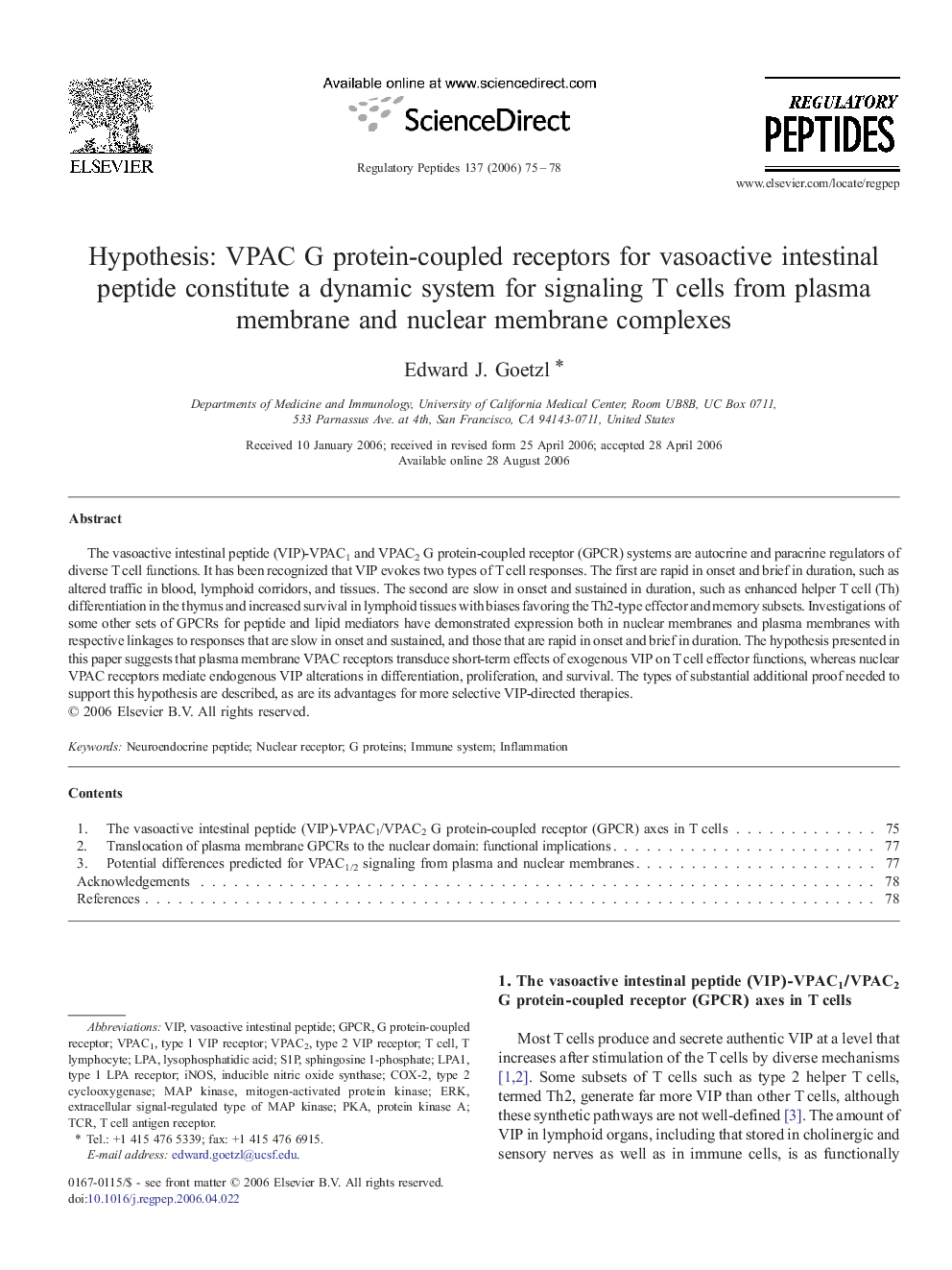| Article ID | Journal | Published Year | Pages | File Type |
|---|---|---|---|---|
| 2023555 | Regulatory Peptides | 2006 | 4 Pages |
Abstract
The vasoactive intestinal peptide (VIP)-VPAC1 and VPAC2 G protein-coupled receptor (GPCR) systems are autocrine and paracrine regulators of diverse T cell functions. It has been recognized that VIP evokes two types of T cell responses. The first are rapid in onset and brief in duration, such as altered traffic in blood, lymphoid corridors, and tissues. The second are slow in onset and sustained in duration, such as enhanced helper T cell (Th) differentiation in the thymus and increased survival in lymphoid tissues with biases favoring the Th2-type effector and memory subsets. Investigations of some other sets of GPCRs for peptide and lipid mediators have demonstrated expression both in nuclear membranes and plasma membranes with respective linkages to responses that are slow in onset and sustained, and those that are rapid in onset and brief in duration. The hypothesis presented in this paper suggests that plasma membrane VPAC receptors transduce short-term effects of exogenous VIP on T cell effector functions, whereas nuclear VPAC receptors mediate endogenous VIP alterations in differentiation, proliferation, and survival. The types of substantial additional proof needed to support this hypothesis are described, as are its advantages for more selective VIP-directed therapies.
Keywords
LPA1TCrCOX-2VPAC2ERKVIPiNOSVPAC1pKaLPAGPCRS1Psphingosine 1-phosphatelysophosphatidic acidinflammationImmune systemT cellinducible nitric oxide synthaseT lymphocyteG proteinsprotein kinase Amitogen-activated protein kinasevasoactive intestinal peptideMAP kinaseNuclear receptorG protein-coupled receptor
Related Topics
Life Sciences
Biochemistry, Genetics and Molecular Biology
Biochemistry
Authors
Edward J. Goetzl,
